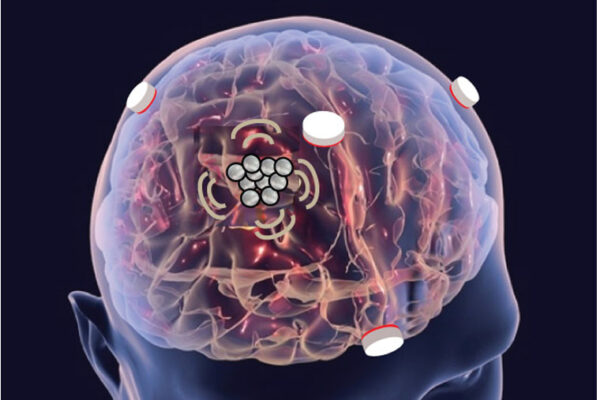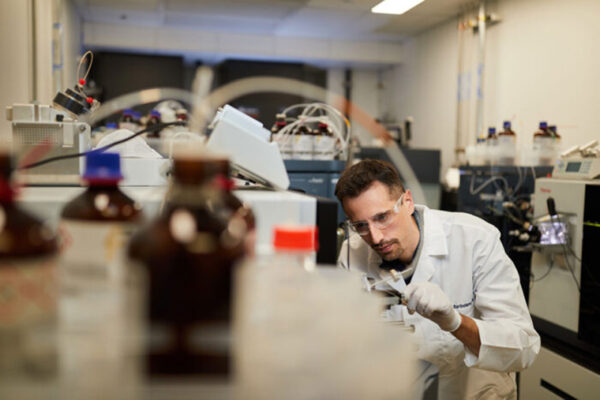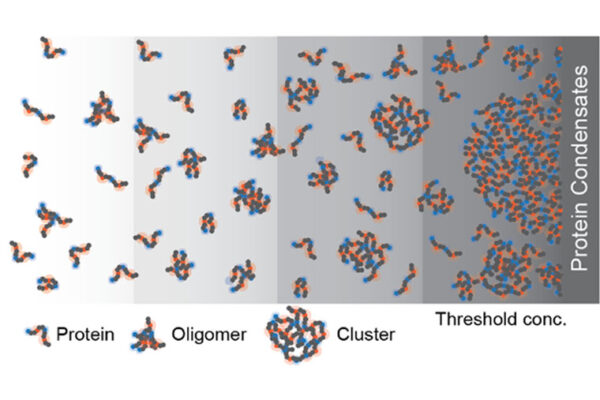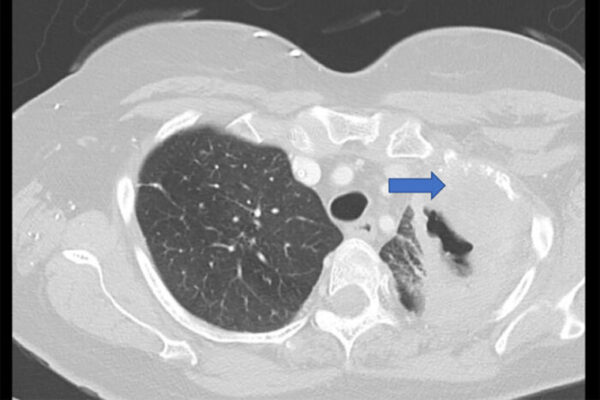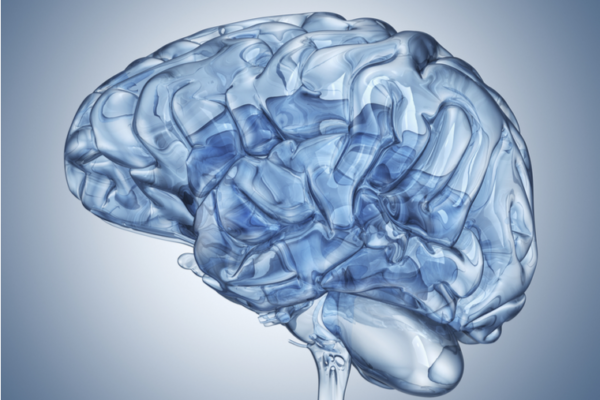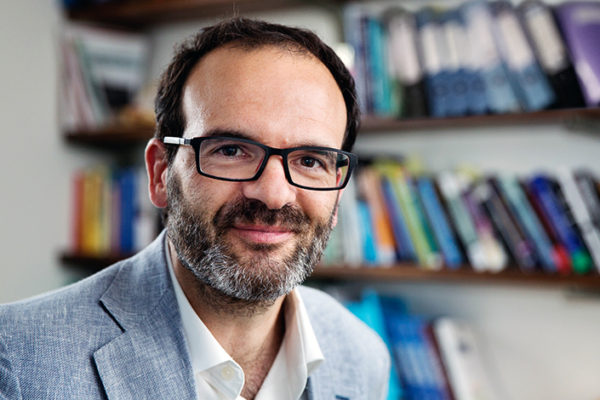Wearable ultrasound sensors for human brain in development
The McKelvey School of Engineering’s Hong Chen and her team are developing tiny sensors to detect blast-induced traumatic brain injury with new funding from the Office of Naval Research.
New center’s aim: to ID biomarkers of neurodegenerative diseases
The Tracy Family SILQ Center for Neurodegenerative Biology has been established at the School of Medicine. The center aims to help researchers discover, study and validate biomarkers of neurodegenerative diseases such as Alzheimer’s and Parkinson’s, with a goal of identifying new drug targets and creating better diagnostic and prognostic tests.
New structure found in cells
A research group led by Rohit Pappu in the McKelvey School of Engineering and Anthony Hyman at the Max Planck Institute have discovered a new, relevant level of structure in cells.
Social interactions tied to sense of purpose
Research from the lab of Patrick Hill in psychological and brain sciences in Arts & Sciences shows a link in older adults between social interactions and having a sense of purpose.
$5.3 million grant supports research into lung cancer recurrence
A National Institutes of Health (NIH) grant to Washington University School of Medicine will support research into understanding lung cancer recurrence.
Gut bacteria mine dietary fiber to release beneficial nutrients
A new study from Washington University School of Medicine found that the fiber byproducts of food production may be an untapped source of beneficial biomolecules that contribute to human health.
Seed grant proposals sought
The McDonnell International Scholars Academy seeks proposals for its second cycle of Global Incubator Seed Grants. The submission deadline is Aug. 15.
OHMB recognizes Barch with Glass Brain Award
The Organization for Human Brain Mapping has awarded its Glass Brain Award to Deanna Barch, of Arts & Sciences and the School of Medicine, in recognition of her influential work on the function of the human brain.
Community-based rehab for disabilities works even in areas of conflict
A community-based rehabilitation program may be an effective way to provide services to people with disabilities even in places with conflict such as Afghanistan, finds a new study from the Brown School and the School of Medicine at Washington University.
Physical intimate partner violence in Colombia costs $90 million annually
The single-year health burden associated with physical intimate partner violence in the South American country of Columbia was $90.6 million, finds a new study from the Brown School at Washington University in St. Louis.
Older Stories
